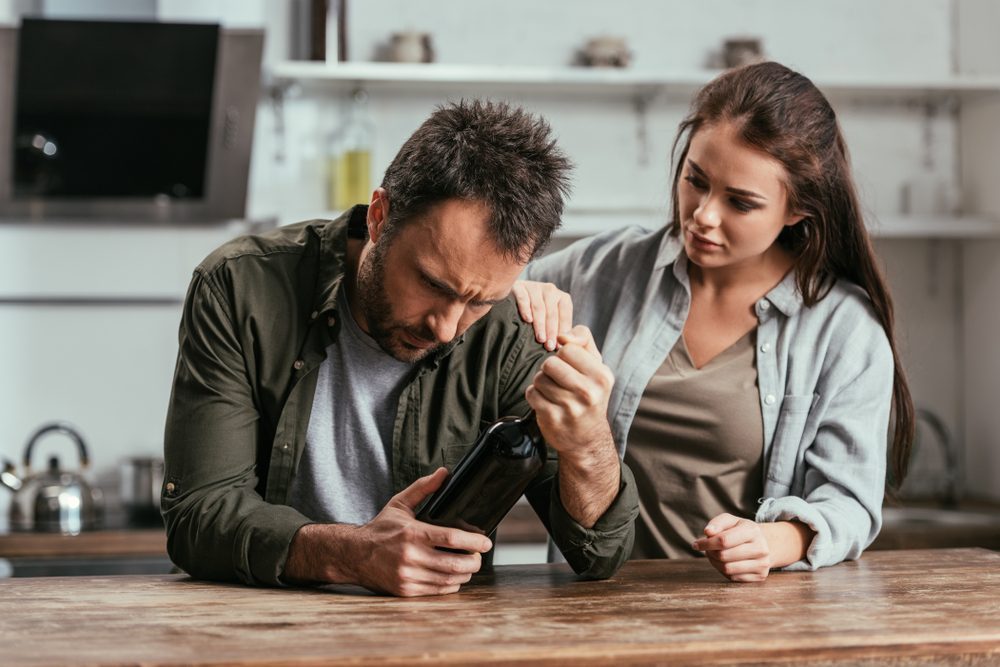
If your loved one is going through drug recovery, the trouble with addiction is that the addict is not the only person who is impacted by this disease. Family and friends can have a daily struggle to support their loved one.
To help you get through these tough times, here’s how to set realistic expectations when someone you love is coping with drug addiction.
Drug recovery can be a huge step in the right direction, so you should be happy and proud that your loved one is doing so.
However, that doesn’t mean it’ll be easy. For the best outcome possible, you should take the advice given here to heart so your family can navigate these challenging times together successfully.
No matter which point your loved one is in drug recovery, you should never guilt them. They should be smart enough to know that their drug addiction did damage to themselves and those around them.
Don’t preach or lecture to the addict. If you keep reminding them of past transgressions, it might make them feel down. They might start feeling like there’s no point in going through drug addiction recovery if you’re going to keep reminding them of things in the past.
Instead, you should always encourage your loved one in their journey. No matter how small the milestone, acknowledge it.
On that note, you should aim always to be supportive of your loved one. You might understandably have some residual feelings about their decision to use drugs in the first place, but try and put those aside.
In general, positive reinforcement is the best way to encourage someone to stay on the right track. It’s also most effective for discouraging them from using drugs or relapsing.
If your loved one feels like they have your support, they’ll feel stronger and more resistant to substances. This will also put them in a better mood, which can make you feel better as well.
As a result, you’ll facilitate a positive cycle that’ll only get better.
While you can do your best to help your loved one along in drug recovery, they’re only human. They’ll likely slip and relapse at least once. Try not to take this personally. It’s not a sign of failure on your part.
It’s more likely that they had a moment of weakness and gave into temptation.
Even so, it can feel like they’re not taking recovery seriously and that they don’t appreciate your support. But it would help if you tried to refrain from lashing out in anger. This might drive them away from you, which is the last thing you want.
If you’re mentally prepared for relapses and don’t set an unrealistic expectation of perfection from your loved one, it can make any mistakes more bearable.
Keep in mind that relapse doesn’t equal failure. Instead, view it as a slight stumble in the road to recovery. This can help you not have such strong emotions about it.
Make sure you sit down with your loved one and ask them what happened to cause a relapse. Don’t judge them, but instead, be an open ear for them.
If the one you love sees that they can trust you not to be angry with them, it’ll make recovery easier on both of you. You won’t have to go through devastating emotions if they do relapse since you’ve already set realistic expectations.
On the other hand, don’t just give in to whatever they want either. Often, family members have supported the person’s addiction without fully realising that they were doing it.
For instance, let’s say they come home after a bad day at work. They’ve been a week sober, but they storm into the kitchen, saying they need a drink to take the edge off.
This is the perfect opportunity to be firm and not allow them to pour a drink. Try to steer them away from the alcohol and do something constructive, such as talk it out or go exercise.
If you feel like you always have to give in to your loved one’s drug-seeking behaviours, this can take an enormous emotional toll on you. Don’t financially support their addiction or rescue the addict as addicts can avoid consequences.
Your loved one shouldn’t have to go through drug recovery on their own. But it would be best if you didn’t go through it alone either.
Thankfully, you can get professional help from counsellors and therapists so you can get things off your mind.
You can always book an appointment with a personal therapist. Please make sure you work with one that has experience with drug addiction so they can provide the best support possible.
You can also find help and support from dedicated support groups.
Examples of other support groups include:
You can also try a rehabilitation facility’s family programme. These speciality programmes allow you to work with a qualified counsellor who is experienced in addiction treatment. You’ll get the emotional support you want and need.
Watching someone go through addiction recovery can be very difficult. You might feel like it’s your responsibility to keep a close eye on them.
But don’t forget to take care of yourself in your own life too, as this is the most important thing you can do to assist the addict.
Without taking moments to rest and recharge, how can you expect to have enough energy to help your loved one in recovery? By this reasoning, you shouldn’t feel guilty if you want to take an hour for a long bath. You deserve it.
Is your loved one wondering about how to get help for addiction issues? Then we can help. Contact us now for discreet and free drug help.